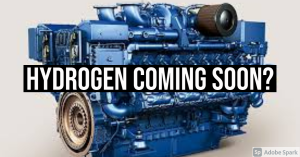Some forms of energy are well-established. Two such examples of this are petroleum products (oil and gas) and coal (technically related to petroleum products, but in a different form). However, there are new science trends that promise potentially new items. One of these is the use of low-grade nuclear chambers using lower-toxicity materials such as thorium. Another one according to CNN that German researchers have announced as a possible trend for the future to watch is hydrogen, which based on new engine developments may be able to replace certain diesel engines in the future.
Siemens and Germany’s rail operator Deutsche Bahn have announced plans to test a hydrogen-powered train with a range of more than 370 miles, technology that promises to reduce CO2 emissions and help make 1,300 diesel units obsolete.
The companies said in a joint statement that tests of a train equipped with a new hydrogen drive will commence in 2024 and run for one year. The two-car train will have a top speed of 160 kilometers per hour (99.4 miles per hour) and it can be recharged in just 15 minutes.
The train, which is called the Mireo Plus H, will run between three cities in the German state of Baden-Württemberg, replacing a conventional diesel-powered unit running on the route. The new hydrogen drive will save around 330 tons of CO2 a year, the companies said.
“Hydrogen drives are an advanced, emission-free form of propulsion that will help decarbonize rail transport and make a significant contribution toward achieving our climate targets,” Siemens (SIEGY) Mobility CEO Michael Peter said in a statement.
Deutsche Bahn operates around 1,300 diesel trains in regional service, and roughly 40% of its 33,000 kilometer (20,500 mile) rail network has not yet been electrified -— meaning trains can’t run using overhead power lines. The company plans to eliminate diesel trains from its network by 2050. (source)
Hydrogen has been used by Germans before as a power source. The notorious Hindenburg disaster in New Jersey is probably the most famous example of this, but it does not rule out at all hydrogen as a possible energy source, and given new technological developments, one can only imagine if it is much safer to use.
What we can take from this is that when people say that a technology has reached its apex, it almost always is not the case, and that a new development is potentially in development or at a very close hand to becoming a new and likely common reality.



